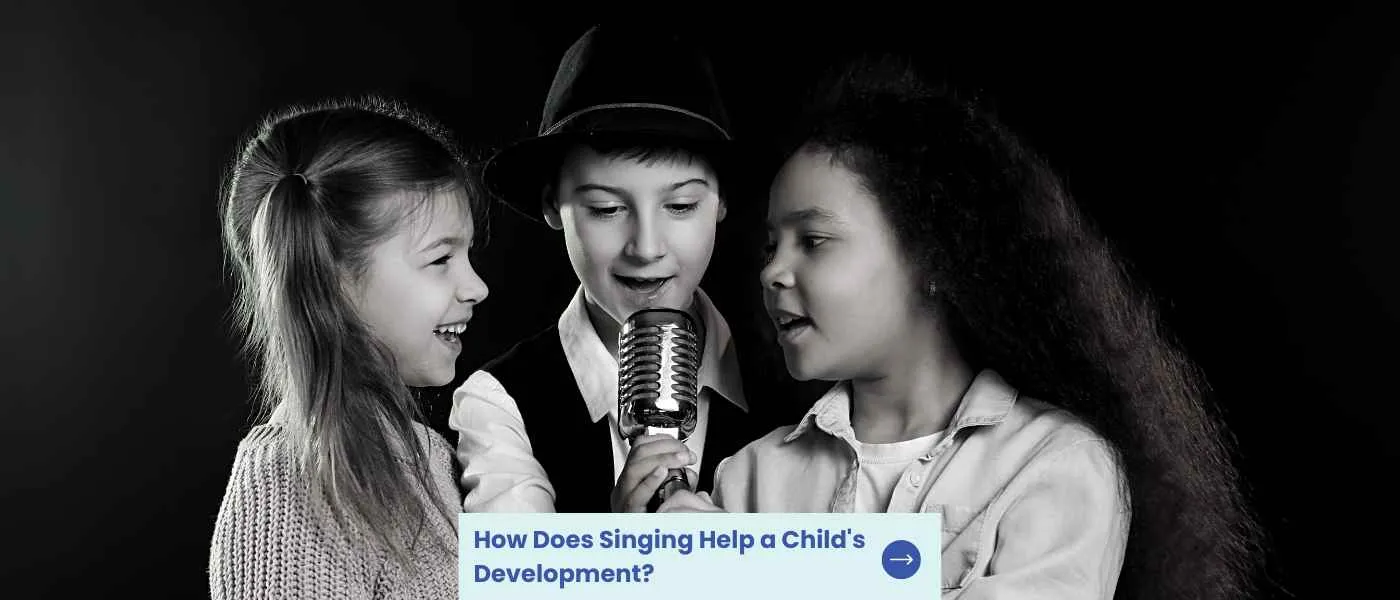Ever wondered why lullabies and nursery rhymes have been passed down through generations? The act of singing, especially in early childhood, holds more benefits than just entertainment. It’s a powerful tool that aids in a child’s holistic development.
Fortunately, singing, whether it’s humming a tune or belting out a favorite song, has been recognized for its profound impact on various facets of a child’s growth, from cognitive to emotional.
As an expert in child development and early learning strategies, I’ve composed a comprehensive guide that elucidates the myriad benefits of singing in early childhood.
Let’s harmonize our understanding and explore the transformative role of singing in nurturing and enhancing the developmental milestones of young minds.
Key Takeaways
Singing can be a great way to help your child develop musically.
Singing is a great way to help children develop cognitively, emotionally, and socially.
To make it fun and engaging for your child, focus on making the activity enjoyable with games or activities that involve singing or music.
Benefits of Singing for Child Development
Singing can be a great way to help children develop in many areas. When children sing, they improve their sense of hearing, memory skills, listening skills, reading skills, social skills and emotional development.
| Benefit Category | Benefit | Description/Examples |
|---|---|---|
| Cognitive Development | Enhances Memory | Memorizing lyrics or the sequence of a song can boost memory skills. |
| Introduces Patterns & Sequences | The repetitive nature of many children’s songs teaches patterns and sequencing (e.g., “Old MacDonald Had a Farm” with its animal sounds). | |
| Boosts Concentration | Listening to and singing along with a song requires focus and attention. | |
| Language Development | Enriches Vocabulary | Songs introduce new words and concepts, expanding a child’s vocabulary. |
| Improves Phonemic Awareness | Rhyming songs emphasize the sounds of words, a foundational skill for reading. | |
| Enhances Pronunciation & Articulation | Repeatedly singing songs can help with clear pronunciation and articulation of words. | |
| Emotional Development | Expresses Feelings & Emotions | Singing can be a way for children to express their feelings, whether they’re happy, sad, excited, or scared. |
| Builds Self-Esteem | Successfully learning a song or singing in a group can boost a child’s confidence. | |
| Social Development | Promotes Social Bonding | Group singing activities, like circle time or choir, foster a sense of belonging and teamwork. |
| Enhances Listening Skills | Listening to others sing or following along with a song nurtures active listening skills. | |
| Physical Development | Supports Gross Motor Skills | Many songs have associated actions or dances that get children moving, such as “Head, Shoulders, Knees, and Toes.” |
| Develops Fine Motor Skills | Hand motions or playing simple musical instruments alongside singing can refine fine motor skills. | |
| Cultural Awareness | Introduces Different Cultures | Singing songs from different cultures or languages can provide insights into the wider world and diverse traditions. |
- It helps children learn about patterns and rhythm as they listen to the words and music of songs. It also encourages them to think creatively when coming up with their own lyrics or melodies.
- Singing is an excellent for language skills as it allows children to practice their language skills while having fun at the same time. Singing helps with language development in kids by exposing them to a range of vocabulary, sentence structures, and pronunciation. The rhythm and melody of music also aid in memory retention and cognitive development.
- Singing together is a great way for the baby and adults to bond with each other while building self-confidence in themselves as performers or singers. They also get a chance to express emotions through music which can help build empathy towards others who may have different feelings than they do.
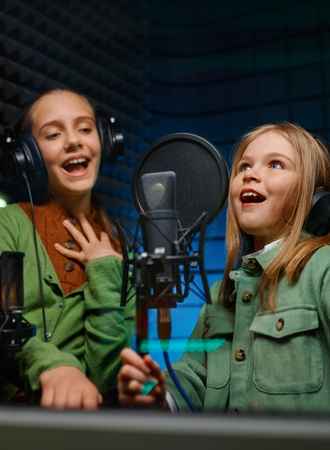
Types of Songs to Encourage Singing in Children
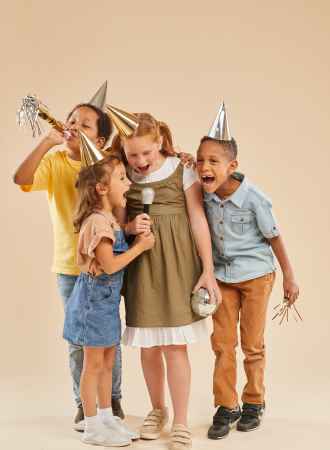
Singing is an important part of a child’s development and can help them learn language, build cognitive skills, and foster social-emotional growth. There are many types of music that can be used to encourage singing in children.
- Nursery rhymes are one of the most popular ways to introduce singing to young children. These short verses often include catchy tunes which make them easy for kids to remember and sing along with. Examples include “Twinkle Twinkle Little Star” or “The Wheels on the Bus”.
- Action music involve physical movement which helps engage both the body and mind while learning new material through song.
- Lullabies are gentle melodies sung by parents or caregivers to soothe babies before bedtime or during nap times throughout the day. You can express love to babies and toddlers by singing lullabies and using calming sounds and voice.
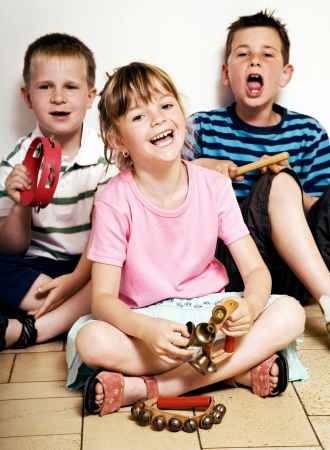
How to Incorporate Singing into Your Child’s Routine
Incorporating singing into your child’s routine can be an effective way to promote their development. Here are some tips on how to make singing fun and engaging, use props and instruments, and create an environment conducive to learning.
- To make singing enjoyable for children, you should focus on making the activity fun rather than educational.
- Using props like scarves or instruments like drums during a song helps keep children interested in the activity while also teaching them about rhythm and sound production.
- Creating an environment where your child feels comfortable is key when incorporating singing into their routine.
- Musical instruments not only encourages your child’s natural musical talent but also helps development in general.
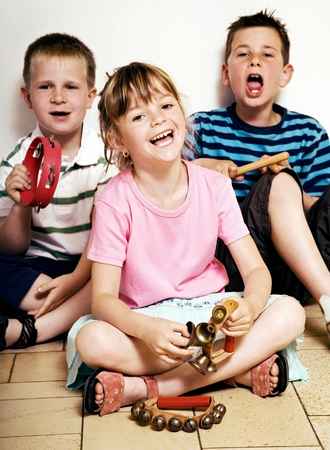
Resources for Finding Songs for Children’s Developmental Growth
Playing music and finding the right songs for your child’s developmental growth can be a challenge. Fortunately, there are many resources available to help you find the perfect song or music piece for your needs.
- With an online music library, you have access to thousands of songs from all over the world. You can search by genre, artist, and age group to find just what you need.
- Local music stores and libraries often carry CDs with children’s songs as well as sheet music for those who want to teach their kids how to play instruments like piano or guitar
- Parent groups and communities are another great resource when it comes to finding appropriate songs for children’s development growth.


